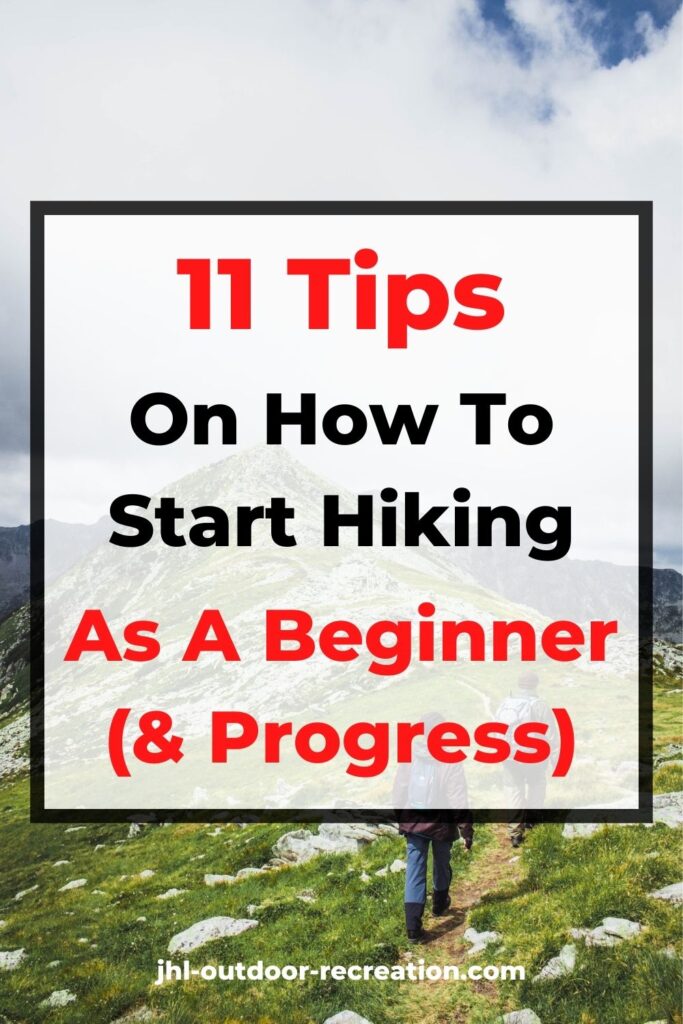Do you have this trouble where you want to hike but you couldn’t, because there is nobody to hike with you, and you don’t know how to start? When I was a kid, I used to run or hang around outdoors, almost everywhere. However, I didn’t really hike back then because i didn’t know how to start hiking!
I was too afraid to hike alone, and I couldn’t find anyone to hike with me. So, I just let go my interest.
After I grew up, I finally got back to my childhood interest and planned to start to hike. Guess what? All the worries come back!
So, how to start hiking if we literally had ZERO experience?
Believe me, every experienced hiker WAS a beginner before. What matter is how you approach and start your FIRST and subsequent hike!
Today, I’m gonna share with you 11 tips for beginners on how to start and progress in hiking.
1. Start looking for hiking buddies
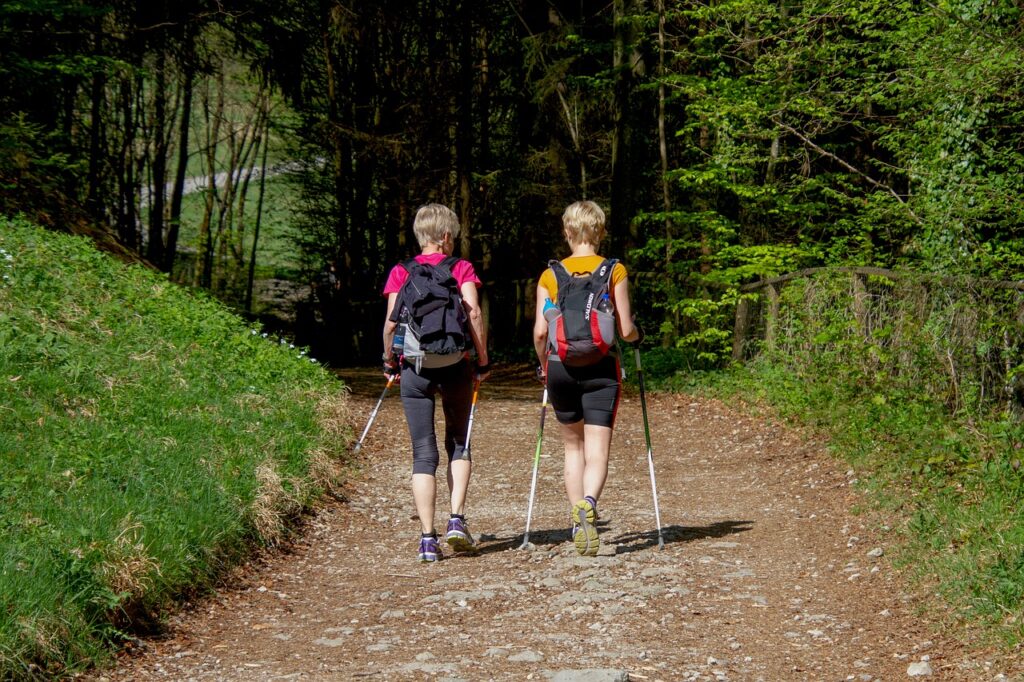
When you start hiking, solo hiking is never a good idea because it is risky and you don’t know anything about hiking, yet. Plus, I believe you are also uncomfortable to hike solo, aren’t you?
So, let’s start to look for hiking buddies to hike with you!
Don’t be reluctant to reach out to look for your hiking buddies due to rejection. Trust me. Certainly there are people out there who share the same interest as you.
There are 4 ways to look for hiking buddies.
Friends and family
Your BFF, colleagues, classmates, parents, sibling, spouse……
I truly believe your friends and family will come to your mind when you want to look for hiking buddies. And, I also believe you are afraid that they are reluctant to hike with you.
That’s OK! You can try to motivate them to hike with you. And, that is a trial! At least, ONCE! Give everyone a chance to try hiking and to inspire them to hike.
If they enjoy and are into hiking as well, that’s EXCELLENT. But, if they don’t, then look for other hiking buddies.
Social media
Facebook, Twitter, Instagram, and what else……? (You name it)
Who knows your long lost friends or your relatives and followers are into hiking and looking for hiking buddies as well?
Post your thought on the social media, and see how the response goes. From there, you can try to reach out the people who react to your post.
And that is exactly the main purpose of social media, right? – To improve communication and bond relationship with each other.
Look for hiking community
Perhaps this is the most reliable way to look out for hiking buddies, as you already know the members are all passionate in hiking.
But, there’s a catch! Sometimes, you need to meet certain criteria before you join the communities. These communities usually have their own rules and regulations when it comes to selecting their members. They are looking for passionate hikers as well!
Or, you could also check the rules and regulations and see whether you are comfortable with that. – Join the hiking community which you are COMFORTABLE with.
The biggest perk of joining community is they might organize hiking / trekking trips around the world amongst themselves! – Well, hiking and trekking around the world is always my goal!
How to reach out the hiking communities? You could find those communities in social media. Alternatively, you could actually GOOGLE search for the nearby hiking communities as well.
Then, of course, sign up and register to apply for membership. You may need to fill in certain basic information for assessment purpose. Also, you may need to contact with the administrator, if necessary.
Form & start a hiking community
Well, instead of joining a hiking community, why not form and start a hiking community by yourself? Yes, you hear it right. – You can do that!
I joined a hiking community of my friend. In fact, my friend was new to hiking. What really surprised me was I received a notification that she and her boyfriend formed a hiking community to look for hikers as well.
The fun thing is, we were all beginners but we were all passionate about hiking. But, it didn’t matter, because we all hiked, laughed and enjoyed the hiking moment. – I would say we all accumulate experience and grow together!
My point here is, you don’t need to be an experienced hiker to form a community. Instead, you could form a beginner hiking community and experience hiking each other.
2. Essential gears and equipment
Gears and equipment really makes people headache when it comes to hiking. You’ll probably look for blog posts or Youtube for hiking gears and equipment. – Trust me, you’ll find them overwhelming!
Each hiker has their own gears and equipment list. Some of them just have some basic gears and equipment; some of them are so “well-equipped” and they literally almost bring “everything under the sun” for a day hike! – Well, should we “under-prepare” or “over-prepare”?
Regardless of what hike you have, you need these ESSENTIAL items. These items include:
- A Daypack / backpack
- A pair of hiking shoes
- Non-cotton clothing
- Water bottle / water bladder
- Snacks
- Basic first-aid kit and whistle
- Smartphone
When you have done the research (as discussed below), you may need to consider additional gears and equipment, depending on the hike that you want. – For additional suggestion on the hiking gear and equipment, you can refer to this post.
That’s right, start to get the essential gear and equipment even before your first hiking session. You know what? I wore cotton clothes and running shoes for my first day hike. And guess what? It was a mess. – Well, a good mess, though. As least I still enjoyed it, lol!
3. Start to research before hiking

I guess you are agitated that you need to do research before you start hiking, right? Well, don’t think this as a task. Why don’t you think as doing a research for your anticipated trips?
Hiking essentially is also a trip. What you’re gonna research will help you get prepared and enjoy your hiking trip. Also, you could do research with your hiking buddies, too!
The good news is, researching the relevant information for hiking is quite easy. You’ll get tonnes of information from the Internet. Blog posts / Youtube videos should be the first approach when it comes to researching. Sometimes, you could also ask your friends or other hikers if they know about the hike that you want.
Or, for more specific information, you may look for the relevant forest authority website as the information may not be available in the blog posts / Youtube videos. Call the forest authority for clarification, if necessary.
Alright, what to research? Generally, you may be interested in: the trail length and the elevation of the hill, the location of the trail, weather, and permit requirement.
The details of the research will be included in a separate post.
4. Plan before you start hiking
After you have researched everythinggggggg for your FIRST- EVER hike, now it’s time to PLAN for your hike. Planning allows you to be informed and be prepared for your hike, so you don’t seem to be clueless when hiking.
Those that you need to plan include: time taken to complete the hike, additional gears and equipment, permit and guide (if necessary), and transportation.
However, you must always spare additional time on your plan to complete your hike. For example, if your expected hike is 4 hours (hiking + travelling), never ever “block” 4 hours on your schedule. Otherwise, you “rush” finishing your hike to attend the next event, say movie or shopping.
Even if you rush, you might not be able to attend the next event right after the hike on time! So, like this case, it is better to block 5 or 6 hours for hiking on your schedule.
Once you’ve considered the above for planning on your hike, you need to either screenshot the trail map or download the hiking app to your phone. This is because usually you won’t be able to use GPS when hiking. These help you navigate or know your whereabouts when hiking, so you minimize the chance of getting lost.
Alright, when everything is done, bear in mind to inform someone about your plan before you go for hiking, at least they are aware of your plan and act accordingly (if necessary).
The details of the plan will also be included in a separate post.
5. Start small
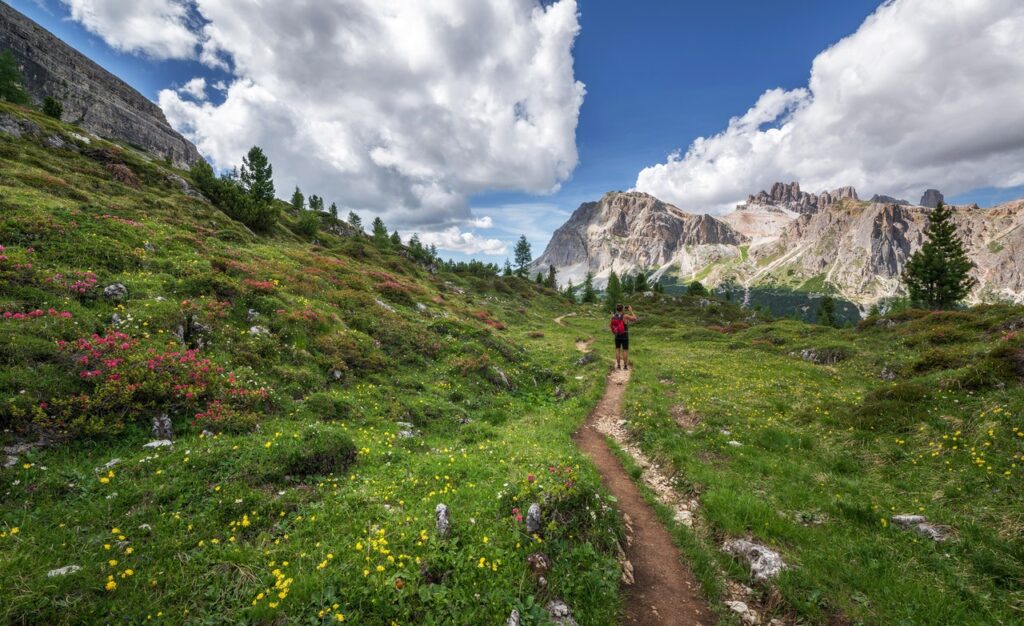
You’d probably watched documentaries regarding those climbing Mount Everest or trekking to Everest Based Camp. Or, you saw some breathtaking photos taken by those hikers at the peak of the mountain.
Then, you start to fantasize that you’ll be one of them one day, hiking those magnificent forests or mountains even you have never hiked before! – Amazing, right? Trust me. I always have these kind of fantasies.
But, we always ignore the toughness behind the documentaries or photos. They take YEARS of hiking and training to be able to hike or climb those magnificent and challenging mountains.
Thus, I wouldn’t suggest beginners attempting challenging mountains at the beginning of their hiking journey. Simple, most probably they will be demotivated to hike and plant the wrong perception about hiking because they are not physically prepared.
Start small is all we need. The main purposes are to motivate ourselves to hike more and gain more experience. Once we get more hiking experience, we get more confidence in hiking and approaching the nature.
But, what is considered as small?
Usually, you can look from two criteria:
- Length of trail – As a beginner, I would suggest DAY HIKE to be your main option. The length of hike could be around 3 miles to 6 miles, which could be completed between 2 to 6 hours.
- Elevation – You could attempt those hills with the altitude less than 1,000 metres. The higher the height, the tougher the ascending, and hence, the more strenuous the hike.
So, for now, you may temporarily discount thru-hike, long distance hiking or backpacking. Those require tremendous stamina and strength to complete the hike. – And, you have to account for time factor as well.
6. Have positive attitude
It is a good sign that you want to hike. Yes, you’ve made a good choice, because hiking is so fun and excited. So, let the positive vibe continue!
I’m not sure how many times I want to emphasize the importance of having positive attitude. To me, it is the FUNDAMENTAL etiquette as a sign of RESPECTING the nature and amongst the hikers!
However, it is inevitably that we are demotivated or frustrated especially when we just start hiking. For example, imagine hiking with your jelly legs and you have 30 minutes more to reach the summit. – Meaning, you still have 30 minutes more to suffer!
Instead of nagging or complaining, imagine yourself getting closer to your target for every step you take. Switch your mind and you’ll realize you’ll reach your target eventually.
Also, you have worked hard on the weekdays. So, it’s time to give yourself permission to fully enjoy the hiking moment. Try to observe the surrounding and feel the vibrant, be GRATEFUL for the present moment that you have.
7. Meet other hikers
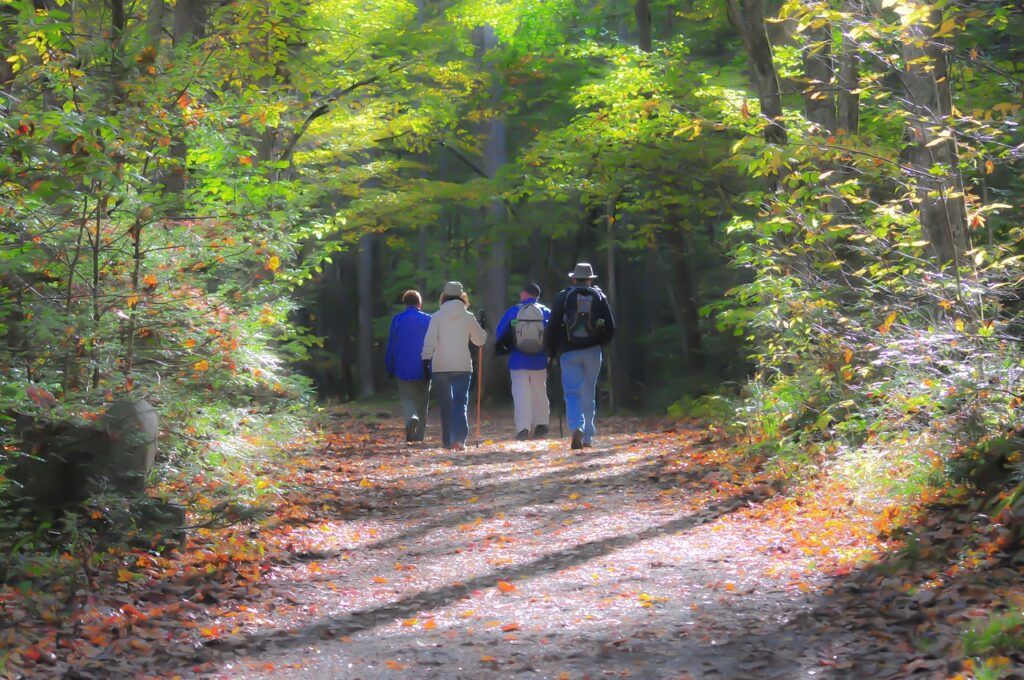
To me, hiking is never an isolated activity, even for solo hiking. Why? Because we will meet a lot of hikers along the trails.
The fun thing for hiking is hikers greet each other when we meet on the trails. A simple smile or a simple “hi” or “good morning” really enlightens the hike! This is contagious which our mood is lifted even we are sweating like a pig or gasping for air. – That is why hiking is really an interesting outdoor activity!
This is the perfect time to put down your phone and be open to meet with other hikers! You may have long conversation with the first-met hikers and may make good friends with them.
And, don’t be afraid to ask them about hiking, because you’ll also be surprised that they are willing to help you as well! Of course, if you are unsure about your location or direction, don’t be shy to ask the hikers around, they might help save you from trouble.
8. Know your limit
When I started hiking, I had the ego that I couldn’t let my hiking buddies down or I needed to outpace them, so that I was not a loser. I had this mindset where I treated every hike as a COMPETITION that I needed to be a fast hiker.
However, I realized this was an incorrect mindset because I felt rushed and tired when hiking. Then, I slowed down my pace and got to know my own limit and hike comfortably.
That’s right! We need to know our limit, especially for beginners. Usually, we pushed ourselves too hard as we don’t want to be embarrassed to be the slowest hiker. We adjust to their speed and try to hike fast even without good stamina. – Eventually, we suffer.
Just slow down and hike at your own comfortable pace. If you hike with experienced hikers, they should be considerate and adjust their pace accordingly. – Not the other way round.
If you are tired, just inform your hiking buddies. Stop and have a rest to hydrate yourself or have some snacks. Take this chance to observe the surrounding as well!
9. Explore tougher hike
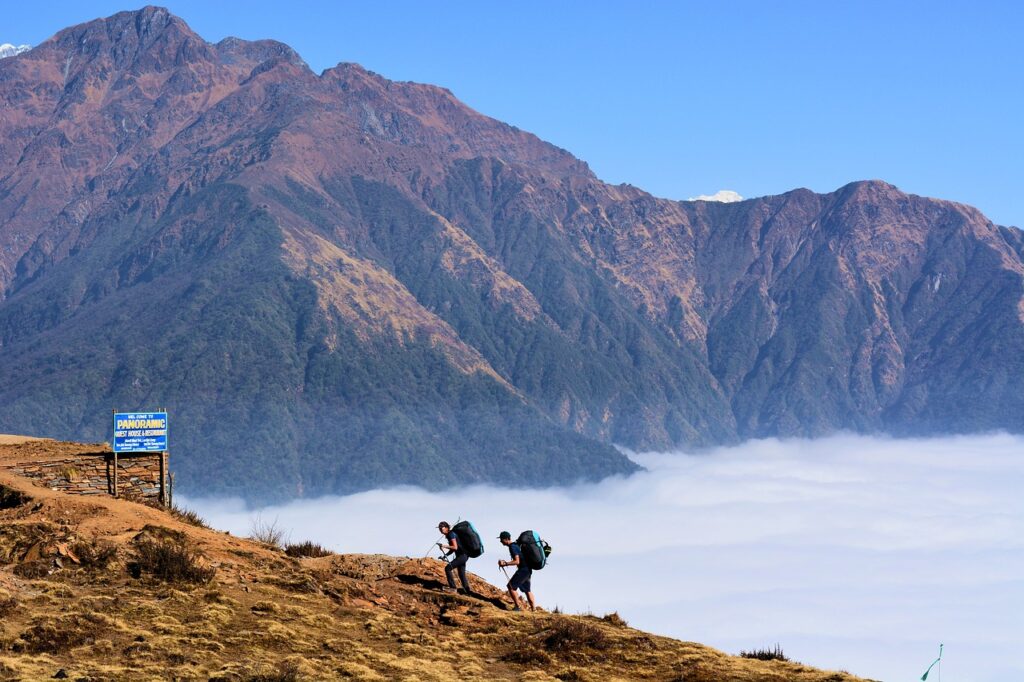
If you have completed your first few hikes, cherish yourself with your achievement. Now, you should motivate yourself for tougher hike.
You should be excited because you are more mentally and physically prepared for a more challenging hike.
Let’s uplift the restriction in “Start small’ above gradually. It’s time to look for longer and tougher hike!
For example, mountain hiking is a good option. You could attempt those high mountains of higher than 1,000 metres.
Or, you could consider hiking on a rocky or muddy trail or adventurous trail with obstacles. These obstacles may require you to climb the rock or cross the rivers, or climb through a cave, or whatnot. – Great workout, by the way.
It’s all up to you! Right now, you should be able to do the research and planning for your next tough hike.
For example, if you plan to have a long distance hike, you need to stay overnight and plan your accommodation accordingly. For camping, you need to learn some basic camping skills. – It’s overwhelming, but exciting at the same time!
And the most exciting thing about this, you can start to build your own BUCKET list! Start to explore those famous hikes around the world, shortlist them and go attempt them when you are ready!
10. Hike often
You’ve done your first few hikes, posted and shared these in the social media. You received a lot of “likes” and positive comment from your friends and followers. – Feels good, right?
Well, hiking is not merely about feeling great of letting people know how awesome you are for hiking. In fact, finish your first few hikes are just the beginning of your hiking journey. Let’s make it your routine, imprint this inside your DNA.
Persistence is the key. Similar to workout, you wouldn’t work out for a few sessions and then expect losing your belly fat and stop working out right after that. – You know you need to keep doing it to reap the benefits.
Plan your hiking schedule, perhaps weekly or bi-weekly. Engage with your hiking buddies so you guys can reserve the time for hiking. Once your schedule is fixed, stick to your schedule. Build your habit from that.
Gradually, you’ll discover your health and stamina get improved. You are getting closer and closer in attempting the hikes in your bucket list.
11. Start solo hiking
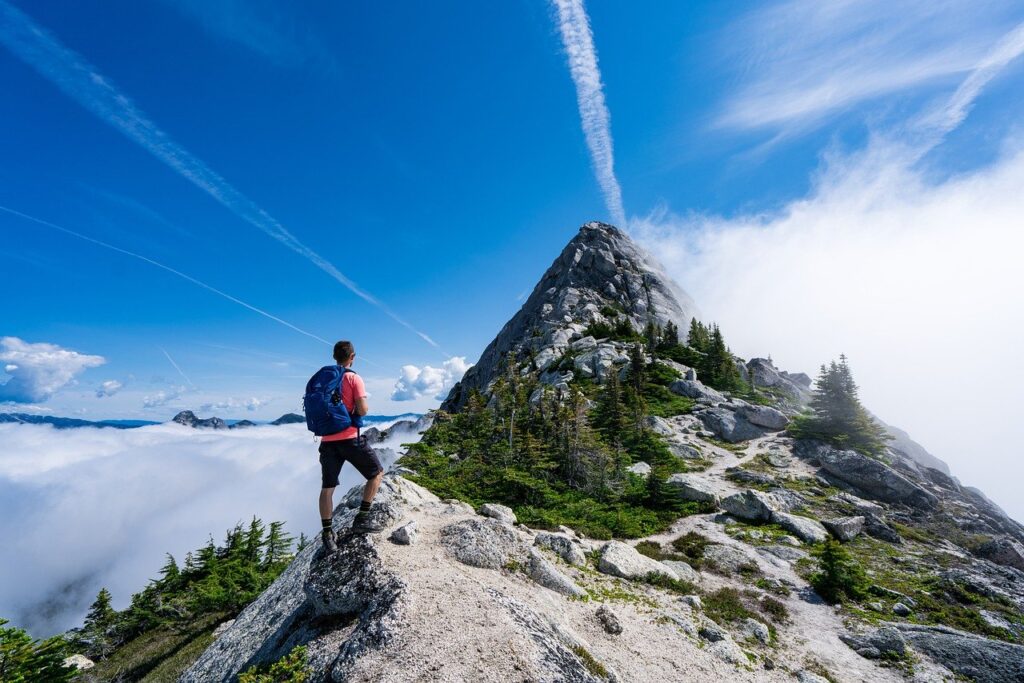
Yes, you hear this right.
Many hikers are afraid of solo hiking. “What if I’m injured and nobody helps me?” “What if I get lost in the jungle?”
The concern is reasonable. However, your confidence increases with your hiking experience. Furthermore, when you understand the basic survival skills, you can consider solo hiking.
The biggest perk is freedom and flexibility you have for solo hiking. Sometimes, our hiking buddies are unavailable for hiking. We end up cancelling our hike. So, there you go for solo hiking.
You allow yourself to adventure and fully immense with the nature. You don’t have to take care of other hikers and you can go on your OWN pace. You’ll discover that your confidence will be boosted a lot, too.
However, hiking safety is the utmost importance for solo hiking. Thus, you can hike solo on familiar trails, so you minimize the chance of getting lost. And, try to hike during the peak period, weekends for instance, or popular trails. This is because most probably you can find other hikers along the trails, and you could look for help if in need.
Disclaimer: This is just an opinion for sharing purpose and shouldn’t be guidance for solo hiking. Don’t try solo hiking if you are uncomfortable with it.
Final thought: how to start hiking & progress
Unlike sports, hiking is relatively a simple activity as we don’t need high level of skill and expertise to hike. So, this is a perfect outdoor activity for us to get fit and healthy.
Notwithstanding this, beginners may find hiking a bit discouraged because of zero experience in the jungle and afraid of getting lost in the jungle. In addition, even if they take the first step, they might feel embarrassed because of how clueless they are when it comes to hiking.
Take some time to do some preparation and research before you start hiking, so that you are informed and are more prepared. Understand your limit and what you could do to have the right thought and positive experience of hiking.
Experienced hikers were also beginners. They learned and gained hiking experience. One day, you’ll be one of them.
Relevant posts
